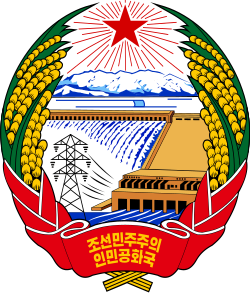 |
|---|
Most visitors to North Korea must obtain a visa in advance from one of the North Korean diplomatic missions. [1]
Contents
- Visa requirement
- Visa exemption
- Non-ordinary passports
- South Korea
- Statistics
- See also
- References
- External links
All visitors holding ordinary passports (except South Korea) must obtain a visa prior to entering North Korea. For tourism purposes require prior authorization from a travel agency registered with the State General Bureau of Tourist Guidance.
